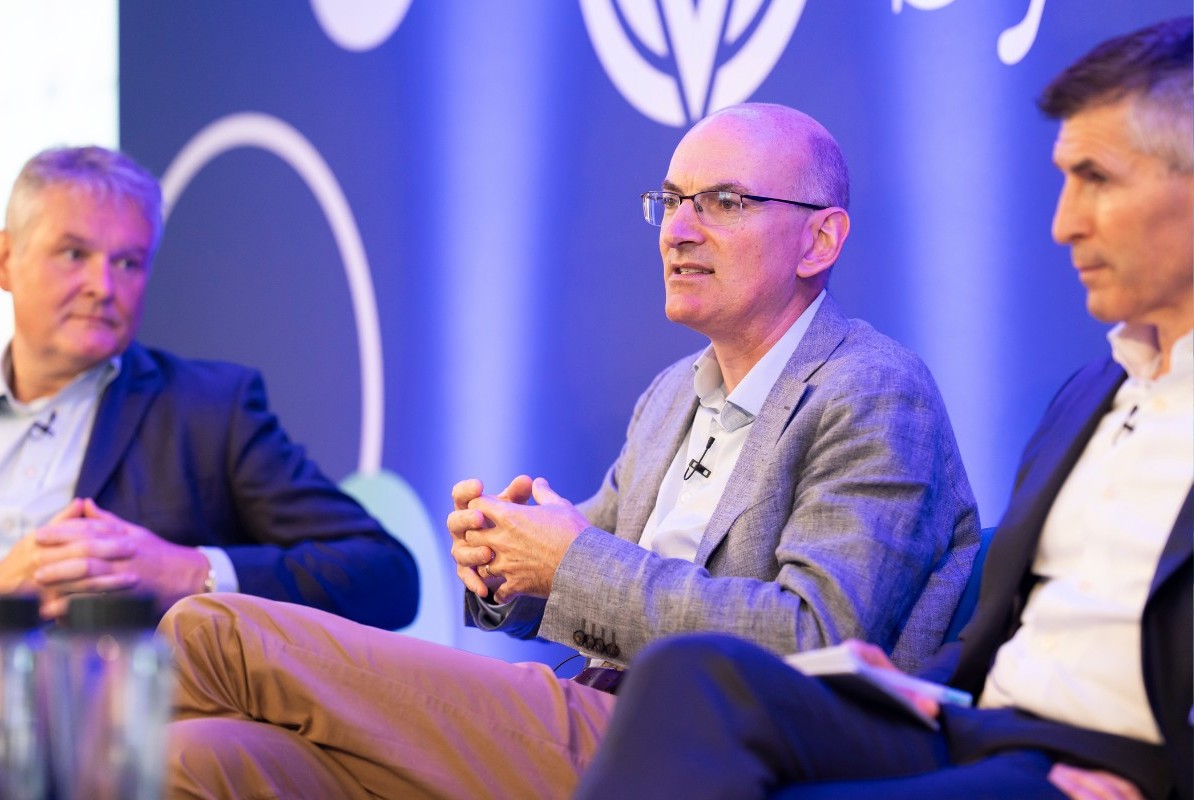Funds are welcoming corporate investors with open arms as the university spinout sector reaches a level of maturity where exits are expected to ramp up.

The UK’s largest investors in university spinouts are looking to attract corporate VCs as investors and co-investors as their portfolios mature and large exits begin to emerge.
The heads of Oxford Science Enterprises, Cambridge Innovation Capital and Northern Gritstone – three of the largest investors in UK spinouts – pitched investment opportunities to corporate investors at GCV’s Symposium in London last week.
Oxford Science Enterprises, the investment company affiliated with spinouts from the University of Oxford, is coming up to its 10-year anniversary and is just now starting to see its portfolio companies mature to the level where large exits are on the horizon. In June, it announced its first unicorn exit – the sale of quantum spinout Oxford Ionics to US quantum technology company IonQ for $1.08bn.
“The very first spinouts we started building in 2015 and 2016 – that first generation of companies are now coming through to extremely exciting valuation points,” Ed Bussey, CEO of Oxford Science Enterprises, told GCV’s corporate investor audience.
Spinout exits on the horizon
More than 300 investors have committed more than £2.5bn to OSE’s portfolio over the past 10 years. Corporates that invest in OSE include GV, a venture capital fund of Google’s parent company Alphabet. CVCs that co-invest in its portfolio companies include the venture arms of oil and gas companies BP and Chevron, and Sony Ventures, the investment arm of the Japanese electronics and entertainment company.
“We feel that we are just scraping the surface of the CVC opportunity, from your benefit and also from ours,” said Bussey.
Andrew Williamson, managing partner at Cambridge Innovation Capital, a fund that invests in spinouts from the Cambridge ecosystem, said he has seen the interaction with CVCs evolve since 2010 when corporate investing in spinouts was a small, niche activity to today when CVCs are taking much more interest in investing in academic research.
Many large technology companies have research arms in Cambridge while large pharmaceutical companies have built a presence in the city’s biomedical cluster. A quarter of Cambridge Innovation Capital limited partners are CVCs. More than three-quarters of its portfolio companies’ fundraising rounds have a CVC participating.
CVCs sought for spinout funding rounds
Duncan Johnson, CEO of Northern Gritstone, an investment company that targets spinouts from the northern English universities of Leeds, Sheffield, Manchester and Liverpool, said his team look to corporate venturers to understand where they should originate deals. Corporates’ understanding of markets and their customers are a key selling point to spinouts seeking commercial validation of their technologies.
“Having the right cap table in the underlying investees matters. To be able to connect to the right corporate venturing partners is really additive to the business,” said Johnson.
OSE welcomes corporates to either buy equity in the company to have a broad exposure to the technologies in its portfolio or co-invest in its startups. It also works with corporates to build a venture specifically addressing a problem that they face. An important part of its business is a venture building programme, called Entrepreneurs In Residence, which pairs founders with academic researchers to build ventures from the ground up. It builds about 10 ventures a year through the programme but plans to double this number after having had success with the project.
“We can join the dots between different areas that address a particular corporate’s needs, whether that is a clean tech issue, an ag tech issue, a chip issue,” said Bussey.
“The source of disruption to your sector, or the transformation to your sector, is going to come out of our ecosystems. If you want line of sight into what is going to emerge in the next 10 years that could be a threat or an enabler to what you are doing, it will probably be in one of these ecosystems,” he said.
Hope for pension reform to unlock capital
More corporate capital for university spinouts is expected to be unlocked by pension reform in the UK, known as the Mansion House Accord, a voluntary initiative that allows the UK’s largest pension providers to invest at least 10% of their defined contribution funds in private markets, including venture capital.
A UK corporation that is ramping up investments in spinouts as a result of the pension reform is UK financial services firm Aviva, a large pension provider. Its corporate venturing unit was recently restructured and brought into Aviva’s asset management group, Aviva Investors, which earlier this year launched a new venture and growth capital fund that can interact more easily with its pension fund clients.

Aviva Investors invests in OSE, Cambridge Innovation Capital and Northern Gritstone as well as directly in spinouts. Tom Grant, head of venture and growth investments at Aviva Investors, said there is a clear maturing of the university spinout sector in the UK. The team invests in companies like OSE as a way to build a pipeline that gears it up to take equity stakes directly in individual spinouts at a later stage.
“We are building something that we think will have tremendous value over the long run, predicated on the quality of the IP and the ability to commercialise it,” said Grant, speaking on a panel at the GCV Symposium.
The UK’s universities have an opportunity to attract talented academic researchers from the US who feel “under siege” there, says Ed Bussey, CEO of Oxford Science Enterprises. The Trump administration has introduced cuts to federal funding for science and research that could lower the pipeline of spinouts.









